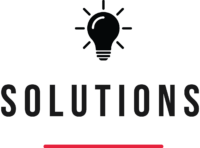


The primary goal of Sustainable Development Goal 1 (SDG 1) is to eradicate extreme poverty globally. This includes ensuring that people everywhere have access to basic resources such as food, clean water, healthcare, education, and social protection. The aim is to lift individuals and communities out of extreme poverty, promoting inclusive economic growth and social well-being.

SDG 1 addresses various interconnected problems related to poverty, aiming to eradicate extreme poverty, i.e., enhancing the lives of people living on less than $1.90/RM 10.00 a day (the international poverty line) out of extreme poverty. There is need for access to basic services such as access to essential services like education, healthcare, clean water, and sanitation. Social Protection Systems need to be established to support vulnerable populations and provide a safety net during economic challenges. An inclusive economic growth policy that benefits all members of society, reducing income inequality is mandatory. The poor need to be resilient to economic, social, and environmental shocks by preventing individuals and communities from falling back into poverty.
Equal opportunities must be created to address discrimination and inequality to ensure that everyone, regardless of gender, ethnicity, or other factors, has equal opportunities to improve their livelihoods. A sustainable development agenda has to be developed to integrate poverty eradication into broader sustainable development efforts, considering environmental sustainability and long-term well-being. By addressing these issues, SDG 1 seeks to create a world where extreme poverty is eliminated, and people can live dignified lives with access to basic necessities and opportunities for a better future.

Eradicating poverty in Malaysia involves a multifaceted approach. Some potential solutions include:
i) Education Access: Ensure universal access to quality education, providing skills and knowledge that empower individuals to secure better employment opportunities.
ii) Job Creation: Foster economic growth and job creation through supportive policies, encouraging entrepreneurship, and attracting investments in sectors that generate employment.
iii) Social Safety Nets: Establish and strengthen social safety nets to protect vulnerable populations during economic downturns, providing financial assistance, healthcare, and education support.
iv) Healthcare Accessibility: Improve healthcare infrastructure and accessibility, addressing health-related issues that contribute to poverty and ensuring everyone has access to essential medical services.
v) Housing Programs: Implement affordable housing programs to address housing challenges faced by low-income families, promoting stability and security.
vi) Rural Development: Invest in rural development initiatives to bridge the urban-rural gap, improving infrastructure, agriculture, and creating opportunities in rural areas.
vii) Gender Equality: Promote gender equality by ensuring equal opportunities for women in education, employment, and entrepreneurship, thereby reducing gender-based poverty.
viii) Financial Inclusion: Enhance financial inclusion through initiatives such as microfinance programs, making financial services accessible to those in need.
ix) Environmental Sustainability: Develop sustainable practices that balance economic growth with environmental conservation, creating long-term resilience and preventing environmental degradation that can lead to poverty.
x) Community Empowerment: Empower local communities by involving them in decision-making processes, fostering a sense of ownership and participation in development programs.
xi) Collaboration between the government, private sector, NGOs, and the community is crucial to implement and sustain these solutions effectively. It’s important to tailor strategies to the specific context and challenges within Malaysia to achieve lasting impact.
PARTNERS



